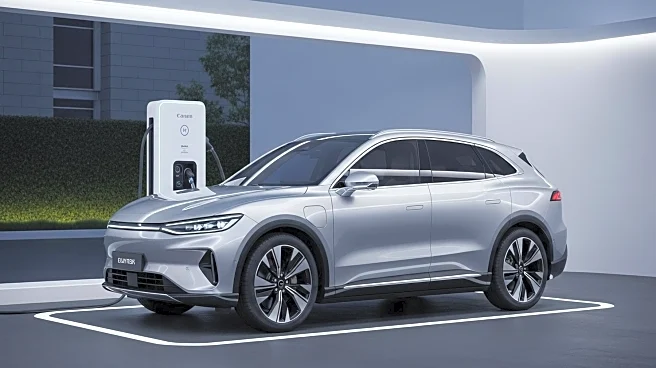What's Happening?
Mercedes-Benz is among several automakers expected to benefit from the U.S. electric vehicle (EV) tax credit rush, particularly with its smaller SUV models priced below $80,000. As the tax credit phase-out approaches, buyers are rushing to purchase qualifying EVs to take advantage of the financial incentives. Mercedes models such as the EQS, EQE, and EQB are positioned to attract luxury car buyers seeking tax credits. The IRS stipulates that the manufacturer's suggested retail price (MSRP) for qualifying vehicles cannot exceed $80,000 for vans, sport utility vehicles, and pickup trucks, and $55,000 for other vehicles. This has led to increased interest in smaller SUVs and crossovers from luxury brands, which are more likely to qualify for the tax credit.
Why It's Important?
The impending phase-out of the EV tax credit is significant for the automotive industry, as it influences consumer purchasing decisions and impacts sales figures. Luxury brands like Mercedes, which have a strong presence in the electric vehicle market, stand to gain from this surge in demand. The tax credit provides a financial incentive for consumers to transition to electric vehicles, supporting broader environmental goals and the shift towards sustainable transportation. Automakers that can capitalize on this opportunity may see increased sales and market share, particularly in the luxury segment where buyers are motivated by tax savings.
What's Next?
As the tax credit phase-out deadline approaches, automakers are likely to ramp up production and marketing efforts to maximize sales. Mercedes and other luxury brands may focus on promoting their qualifying models to attract buyers seeking tax benefits. The release of third-quarter sales figures will provide insight into which brands successfully leveraged the tax credit rush. Additionally, automakers may advocate for policy changes to extend or modify the tax credit, ensuring continued support for the EV market.
Beyond the Headlines
The rush to purchase EVs before the tax credit phase-out highlights the importance of government incentives in driving consumer behavior and supporting industry growth. It also underscores the need for automakers to strategically price and position their models to meet regulatory requirements and consumer expectations. The long-term impact of these incentives on the EV market and environmental goals will depend on continued policy support and industry innovation.









